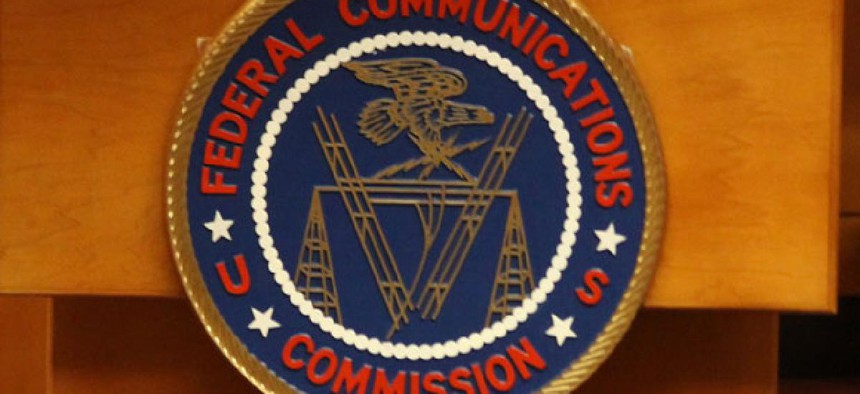Six Revealing Quotes From Obama's New FCC Nominee, Tom Wheeler

FCC
The potential chairman wrote prolifically about tech on his blog.
President Obama is said to be preparing to nominate Tom Wheeler to chair the Federal Communications Commission. According to The Wall Street Journal's Danny Yadron, the nod could come by as early as tomorrow afternoon. Wheeler's a noted venture capitalist and a top former lobbyist for both the wireless industry and the cable companies, making him a very well-connected pick. Incidentally, Wheeler was also an Obama bundler, contributing over $245,000 to the president's reelection campaign.
Wheeler now faces confirmation by the Senate, but that's perhaps the last place to turn for insight into what the candidate really thinks on tech policy. A far more interesting set of opinions can be found on Wheeler's blog, which he's kept since May 2007. I've pulled together some of the best clips below:
On net neutrality, Wheeler tried to convince network operators to back the FCC's policy:
Rules that recognize the unique characteristics of a spectrum-based service and allow for reasonable network management would seem to be more important than the philosophical debate over whether there should be rules at all. ... The wireless industry’s initial reaction to net neutrality was to question its need and warn of “unintended consequences.” Accepting the inevitability of the concept, however, and working to maximize its positive effects – from appropriate network management, to flexible pricing and even new spectrum – could be the opportunity for a big win.
On media paywalls, Wheeler had some tough love for news companies:
Clinging to the comfy economics of scarcity by moving content behind pay walls won’t bring yesterday back. ... The name of the game is how to make money out of abundance, not how to maintain scarcity.
On the privatization of space exploration, Wheeler likened NASA to a telecom monopoly:
NASA was the Bell Labs of Space. Like Bell Labs they delivered important innovations and added to our national pride. To continue a 20th Century command-and-control model in an era of distributed development is not in the best interest of NASA, however. We were once told the telephone network was so complex and essential to national security that it had to be protected from competition. Now we hear the same warnings with regard to the space program.
On reallocating spectrum more efficiently, he argued for a kind of lightly managed chaos:
Exhibit A for 21st century spectrum planning is WiFi. Operating in unlicensed spectrum, WiFi is a cacophony of competing claims for use of the spectrum. The characteristics of Internet Protocol (IP) packets allow WiFi in a Starbucks hotspot, for instance, to operate more efficiently that the licensed spectrum on the sidewalk outside.
Spectrum has always been allocated based on the physics of analog signals. Blocks of megahertz were allocated and then licenses were assigned within those allocations based on a single overriding purpose: to keep the signals from interfering with each other. Guard bands were often added to make doubly sure a signal licensed for one purpose didn’t interfere with a signal authorized for another purpose. ... Digital networks, in contrast, eschew perfection in favor of self-ordered chaos and from that chaos come greater capabilities and expanded capacity.
On Internet privacy, Wheeler proposed entrusting network operators rather than content providers or Web companies themselves:
Since Apple and Google have shown their true colors regarding consumer privacy, network operators could become the consumers’ privacy protector by not allowing such information to pass without consumer consent. It’s not that the use of information is bad – it’s whether I as a consumer have any control over the use of the information I create. A trusted wireless operator could become my information banker, securing my privacy and permitting withdrawals on my terms rather than Silicon Valley’s terms.
Wheeler hinted at his favor for 2011's failed AT&T/T-Mobile merger—not because it would've been good for consumers, or for the businesses themselves, but because it would've given the FCC more jurisdiction to regulate mobile broadband:
... An AT&T victory in the appeal of the Justice Department decision would reopen the FCC’s ability to determine appropriate public interest protections.
The government’s decision to block AT&T’s acquisition of T-Mobile will have more than structural repercussions for the wireless industry. If the Justice Department prevails in court the backdoor to imposing a new regulatory regime on wireless will have swung shut. On the other hand, an AT&T court win will trigger government regulation that could ultimately spread to all wireless carriers.
NEXT STORY: VA Eliminates Bonuses for Benefits Officials





